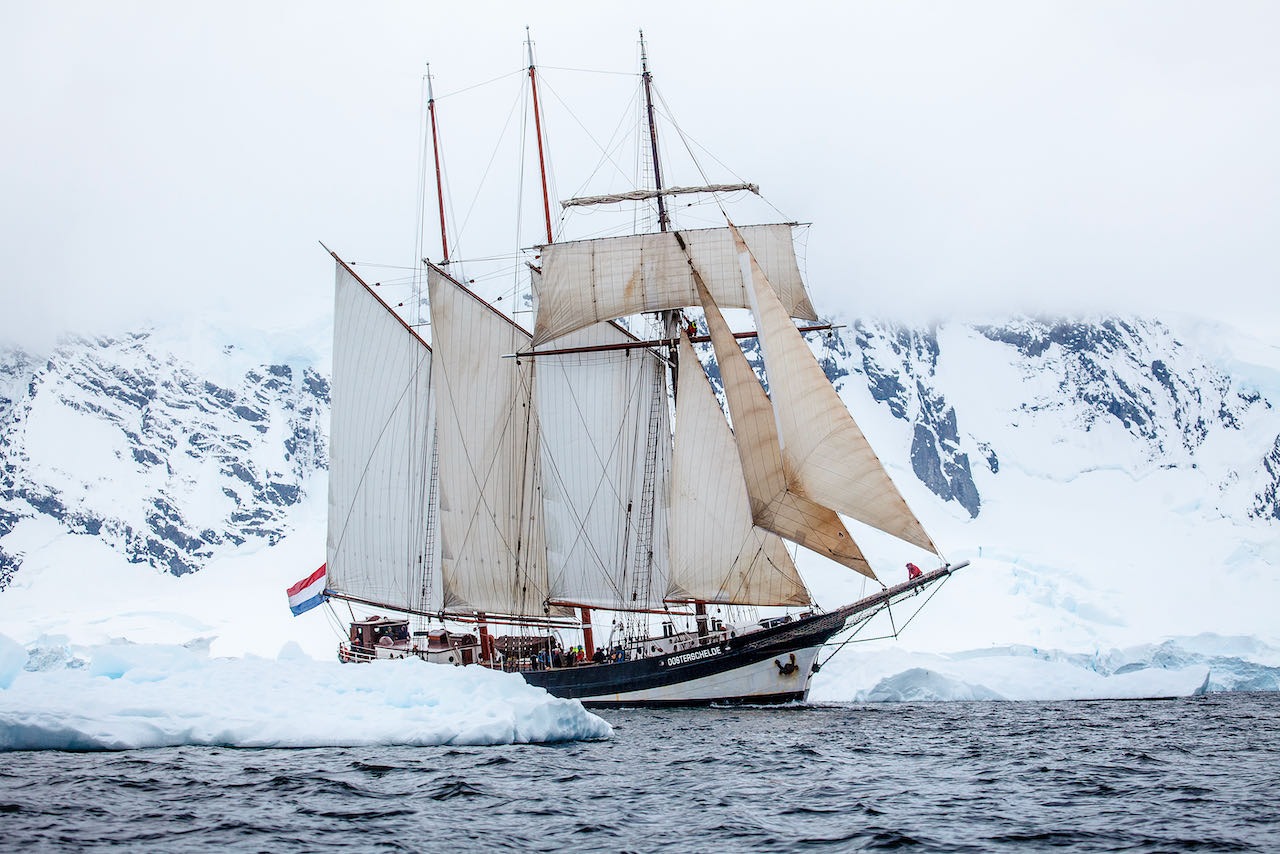A sailing ship retraces the route taken by Darwin’s Beagle.

A three-masted schooner will set sail from Plymouth on Monday, carrying young naturalists for a two-year educational voyage. Additional crew members are needed.
On Monday, August 14th, taking advantage of favorable tides, a vintage sailing ship will navigate Plymouth’s historic Sutton Harbour lock before heading southwest toward the Canary Islands. This marks the beginning of a biennial global journey spanning 32 ports, engaging numerous individuals in the innovative Darwin200 initiative. The initiative aims to cultivate future environmental leaders and scientists, among other objectives.
Moreover, adventurous individuals have the chance to join the crew for extraordinary voyages, such as between Tahiti and the Cook Islands, or from Cape Town to the Falklands.
The Oosterschelde, a classic Dutch three-masted schooner, intends to retrace the path of a historic vessel from nearly two centuries ago. On Boxing Day in 1831, a young man boarded the HMS Beagle in Plymouth. The next day marked the start of a journey that would change the course of our world. At the age of 22, Charles Darwin was unaware of the immense significance the expedition would hold. He struggled with what we now know as impostor syndrome, questioning his worthiness of the opportunity bestowed upon him. However, his determined spirit and boundless enthusiasm prevailed. This same spirit is what Stewart McPherson, the founder of Darwin200, hopes to leave as a legacy through this endeavor. The goal is to identify 200 young naturalists from 200 countries who will eventually assume leadership roles—individuals who will drive transformative changes. Along its route, the Oosterschelde will visit destinations as diverse as Cape Verde, Rio, Auckland, and Tasmania—all places Darwin had previously reached.
Currently, the initiative has selected 50 young naturalists aged 18 to 25. For instance, there’s Afonso Nascimento, born to a fisherman on Fernando de Noronha, an isolated Brazilian island. Afonso’s upbringing instilled in him an unwavering resolve to protect turtles in his homeland, and through his efforts, he has successfully rescued thousands of these creatures. Like the other selected naturalists, Afonso will have the opportunity to study in one of the 32 designated ports, connecting with ongoing conservation projects. Their primary goal is to study the specific species documented by Darwin, ranging from spinner dolphins to carnivorous flora, and provide assessments of their current status while devising effective strategies for their preservation.
Stewart McPherson, known for his participation in various BBC geographical series and as the discoverer of 30 new species, emphasizes, “The impact of an individual driven by determination can be truly transformative. This phenomenon is a recurring theme. One of our young leaders managed to raise £40,000, acquired a neglected peat bog, and restored it with indigenous flora. Others have spearheaded extensive tree-planting campaigns. We are looking for young individuals ablaze with raw passion, those intent on revolutionizing the world.”
However, the scope of this ambitious project goes beyond its initial goals. Throughout the two-year journey, a series of free lectures, experiments, and activities will be broadcast from both the vessel and the 32 ports it will visit. These offerings will be accessible globally through the Darwin200 website, promoting engagement on an international scale. Another aspect includes weekly competitions, including a coveted prize—a trip for a school class and their teacher to the Galápagos for studies under the guidance of botanist Sarah Darwin, Charles Darwin’s great-great-granddaughter.
In Plymouth, the commencement festivities will be held over the upcoming weekend, marked by an event at the National Marine Aquarium. The city’s strategic location owes much to its maritime history, making it ideally positioned to await favorable weather conditions for extensive voyages. As the Oosterschelde sets sail on Monday, it will be manned by a 24-person crew, providing another opportunity for enthusiasts to participate. “We’re still seeking crew members for certain legs of the journey,” says Gerban Nab, the ship’s Dutch captain. He specifies, “No previous experience is required, just a willingness to effectively collaborate within a team.”
With over three decades of experience at the ship’s helm, Gerban has navigated the vessel for more than 30 years, and this upcoming venture will mark the third complete circumnavigation. “This mode of travel is profoundly different from other methods,” he reflects. “You’re intimately connected with the water, wind, and weather. Navigation is guided by the stars. Upon reaching your destination, there’s a palpable sense of accomplishment—quite unlike the experience of air travel!”
Built in 1917, the Oosterschelde previously plied the world’s oceans, transporting various cargo such as coal from Cardiff, oranges from Morocco, and Baltic timber. Her journey has been fraught with challenges, including a wartime encounter with a mine, periods of abandonment, and tumultuous storms. Gerban remarks, “Initially, she was just a utilitarian cargo ship, unremarkable in many ways. However, after restoration, she’s been transformed into a marvel—every intricate detail exudes beauty. She moves gracefully through the water, and the sails mitigate the motion.”
This, Darwin would surely have appreciated: His own vessel, the HMS Beagle, was notorious for inducing seasickness in him during every leg of his monumental expedition.


